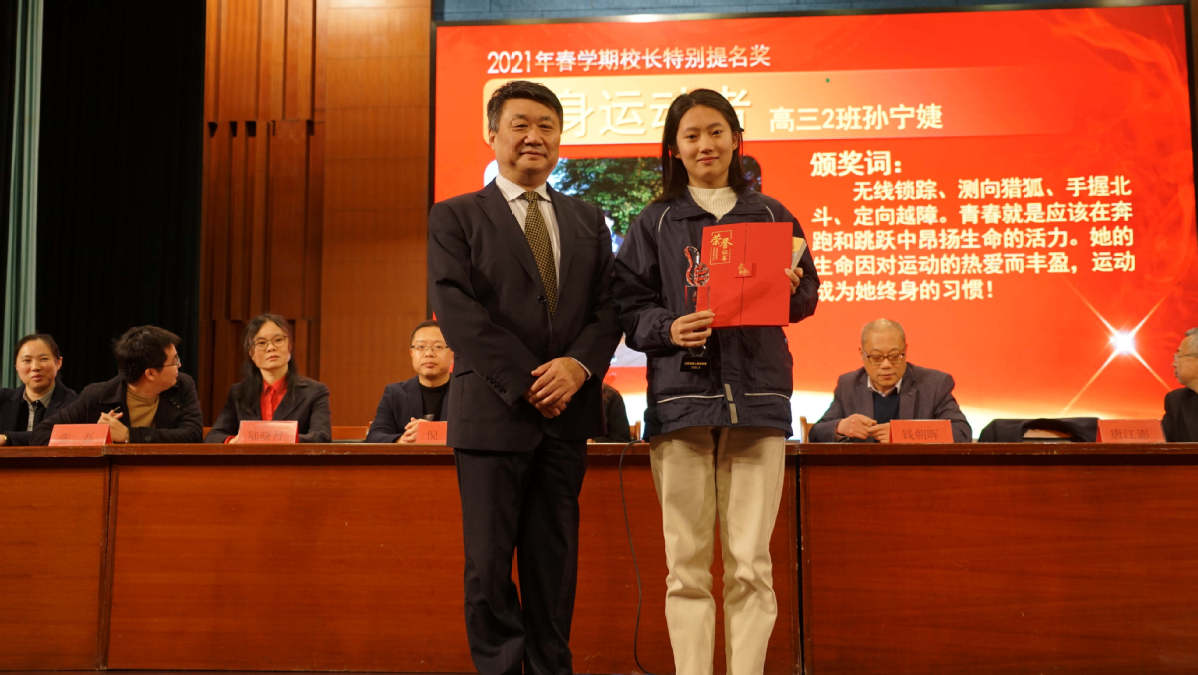The principles of a good education
By Gu Qianwen and Yan Weijue in Wuxi, Jiangsu | chinadaily.com.cn | Updated: 2021-03-24 17:45

Tang Jiangpeng is baffled by the fact that the comments he made about striking a balance between grades and the holistic development of students have made him an Internet celebrity.
To Tang, who is the principal of Jiangsu Xishan Senior High School in Wuxi, East China's Jiangsu province, the need for such a balance should be common sense, and not something out of the ordinary.
The 58-year-old made the comments on the sidelines of the annual session of the 13th National Committee of the Chinese People's Political Consultative Conference, China's top political advisory body, earlier this month.
His five-minute speech quickly drew tens of millions of views from internet users, most of whom are parents supportive of his stance.
"If we only care about grades, students will probably fail bigger tests in life," he said, responding to a question about the essence of education.
In his speech, Tang also underscored the importance of fitness and freeing students from their excessive workloads.
"I think the reaction by netizens shows that society is eager to improve the education system for the benefit of the children," he told China Daily on Tuesday.
Tang, who has been teaching for more than four decades, argues that education is meant to develop physically fit individuals who are responsible problem solvers capable of living a good life.
This philosophy is exactly what his school practices.
At Jiangsu Xishan Senior High School, all students are required to undergo a one-hour physical education class every day. Students can also opt to take elective courses such as intelligent farming, public speaking and industrial design – all of which are not included in the national college entrance examination, or gaokao.
The school has also launched a unique project in which students assume various professions in the context of a city. They could be a bank clerk, a postman, a radio host or even the mayor.
























